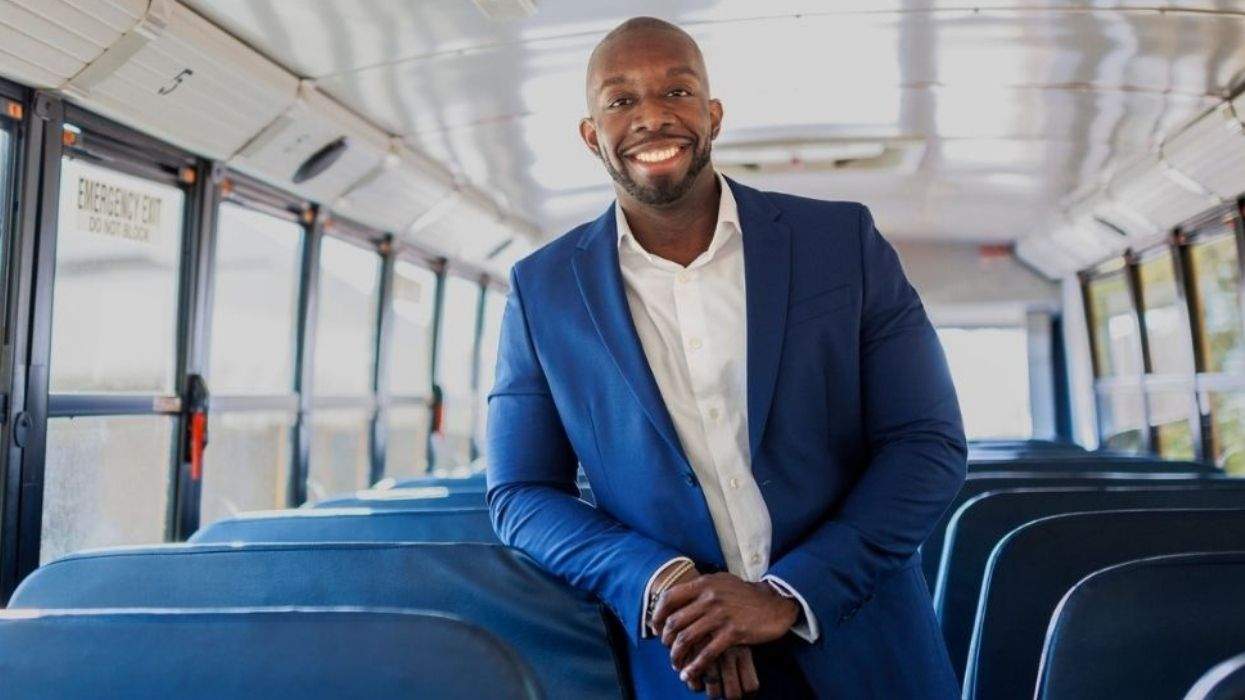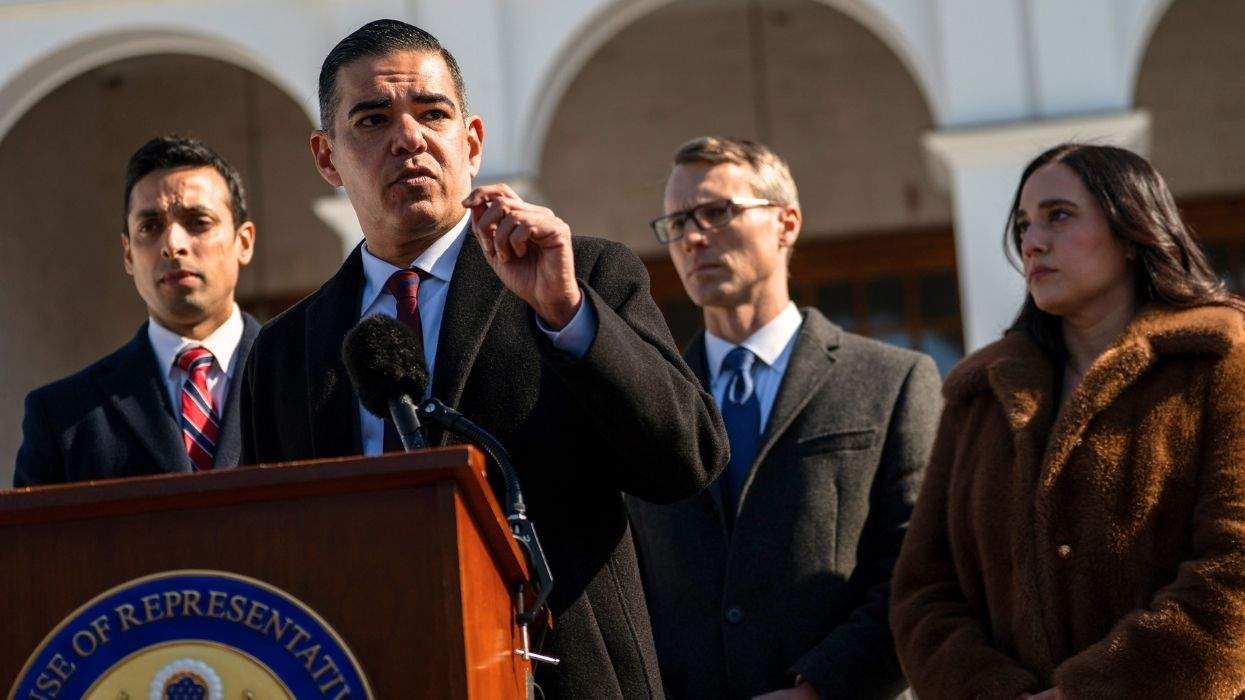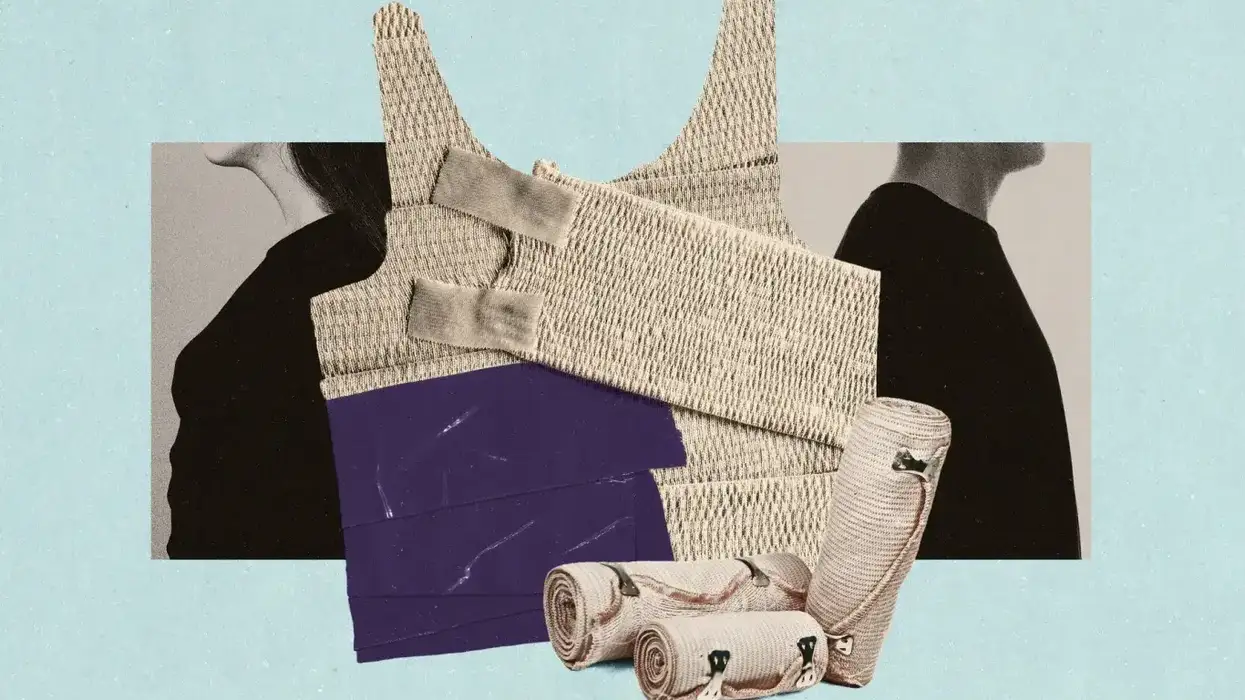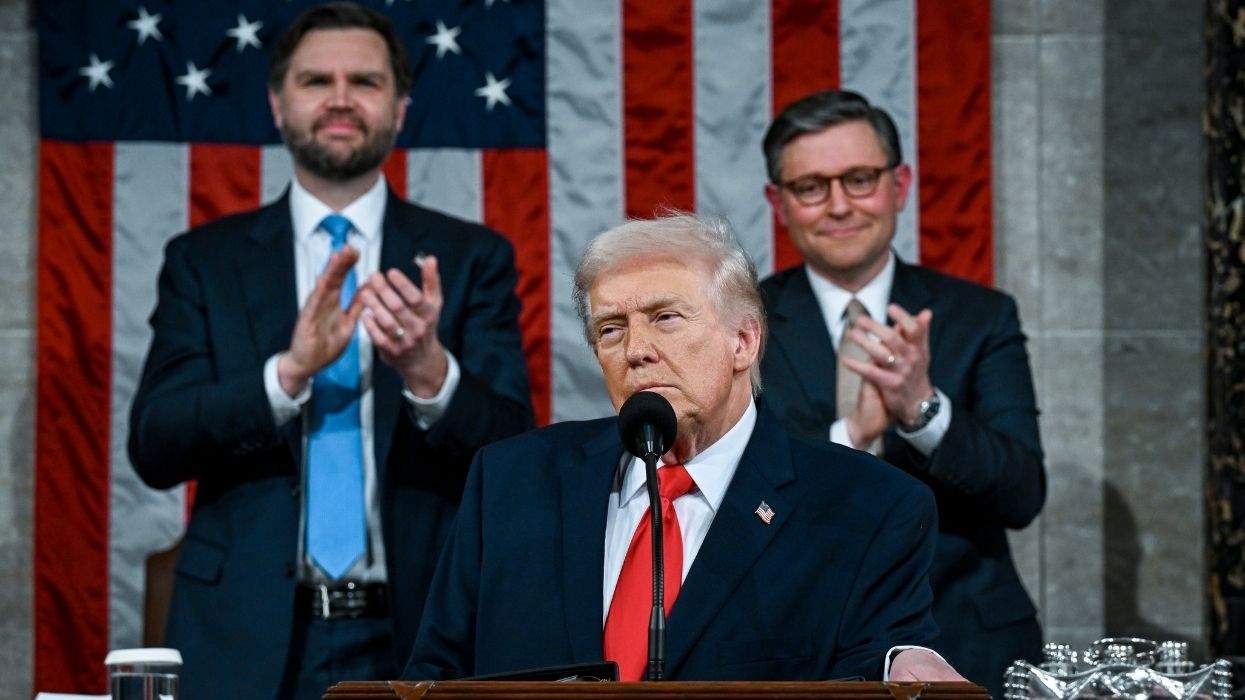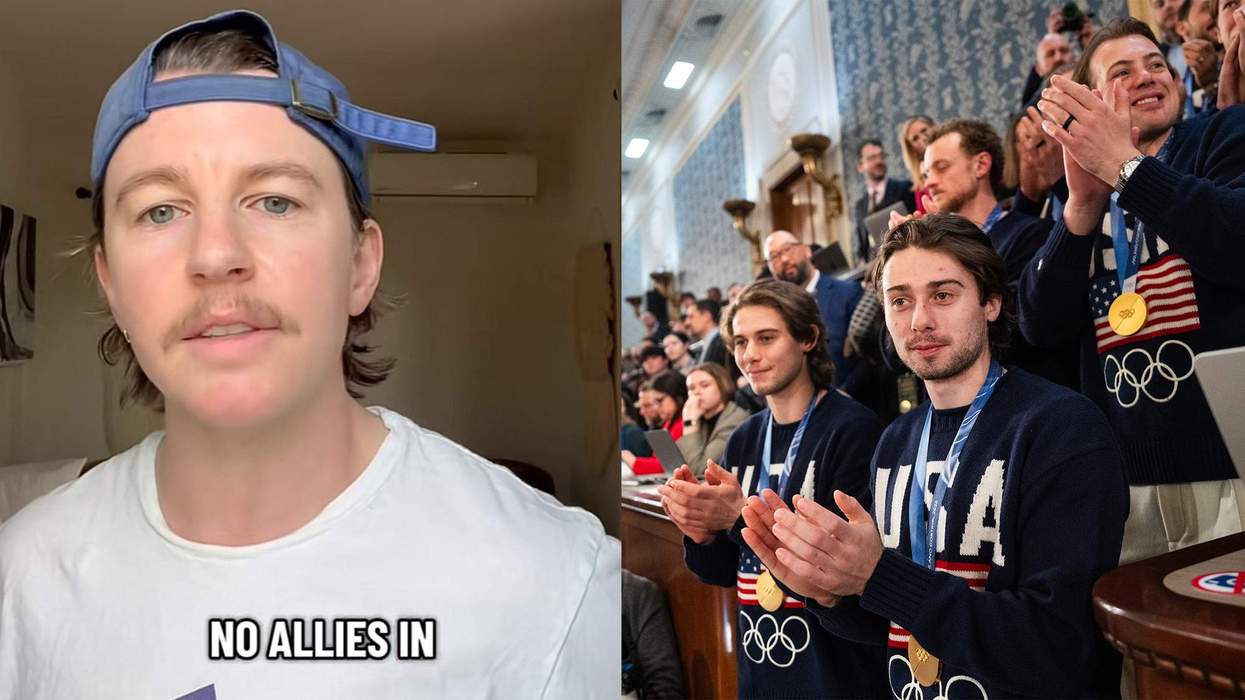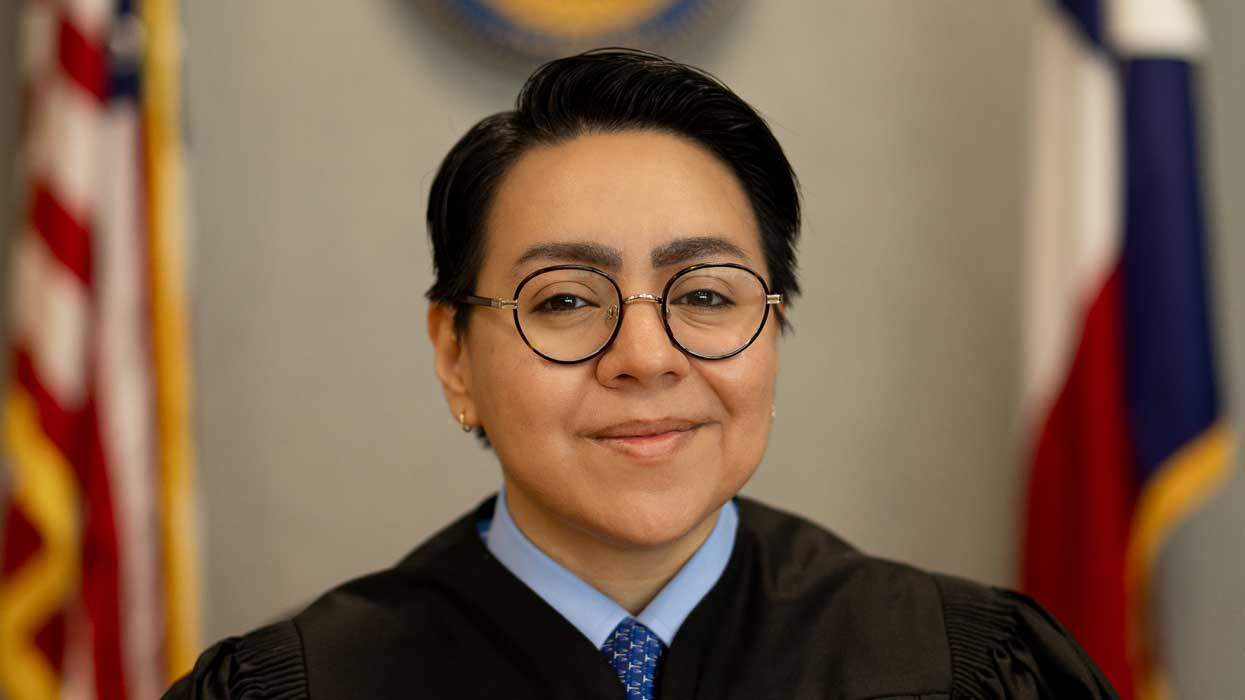Charlottesville, Va., became a war zone this month. As white supremacists descended onto the city for a "Unite the Right" rally, counterprotesters organized to tell a different story, one of love that demands action and rejects the hate and vitriol of white supremacy.
We are two of those who participated in the counter-protest as national faith leaders who are members of the National Religious Leadership Roundtable of the National LGBTQ Task Force. We are both queer-identified Latinx activist-theologians whose experiences as light-skinned, mixed-raced people compelled us to answer the call for clergy to come to Charlottesville.
We were on the ground to experience firsthand the raucous and intimidating displays of violence, racism, anti-Semitism, and anti-LGBTQI sentiments, and we spent the day providing pastoral care and engaging in public witness.
Our encounters prompted us to consider the question of "Why, as LGBTQI clergy, public theologians, and activists, is it important to show up and confront those who are promoting white supremacy and fascism?" Dr. Robyn Henderson-Espinoza believes white nationalism is our religion and a culture of violence is our liturgy. Indeed, what we and other clergy witnessed in Charlottesville was our nation's raw unfettered hatred, and it was a moment that called for a direct response -- not only in theology, but also in practice.
For Rev. Alba Onofrio, spiritual strategist for the national LGBTQI organization Soulforce, the answer is integrity.
"We cannot end discrimination and oppression against LGBTQI people that stems deeply from weaponized Christianity without recognizing how that weaponization fully operates across different systems of violence -- as Christianity has been used to undergird our criminal justice and immigration systems and ideologies like white nationalism and imperialism."
Drawing upon our integrity means we cannot just talk about intersectionality, but we now must show up when it is time for the show down.
Ending the ideology of Christian supremacy (part of Soulforce's mission) requires us to understand and then disrupt the toxic ways in which religion has been moralizing violence for centuries. It shows up these days as justification for global antisodomy laws, transphobic bathroom legislation, cultural villainization of trans people, as well as the criminalization of people of color and immigrants. And because our LGBTQI communities are composed of people of color, immigrants, and people from every faith tradition, it is imperative that we stand against violence that comes for any one of us and threatens the wholeness and complexity of our lives.
For Dr. Henderson-Espinoza, the overexposure to hate, violence, and vitriol was deeply traumatizing. Dr. Henderson-Espinoza walks through the world as a transqueer Latinx theologian and ethicist, and though they were accompanied by a security detail for the entire time they were in Charlottesville, witnessing Nazis charge toward them in a rage of violence, carrying weapons, and forcing them to evacuate, is detrimental on multiple levels. It was in those moments, that Dr. Henderson-Espinoza was reminded of precarity of life. They believe that we are experiencing the pulse of the "tyranny of the now," and as such, the overt and covert expressions of white supremacy have become socially acceptable.
There was a call out for 1,000 white clergy to show up, hold public witness, and be a physical presence while perpetrators of white supremacy and fascism were in Charlottesville. While some LGBTQI clergy and faith leaders (white and people of color) came, there should have been more.
When white LGBTQI faith leaders don't show up to fight white supremacy, it appears at best indifferent and at worst, complicit with the terror tactics of white supremacy. It also reinforces the stereotype that racial justice isn't a concern for the (presumably white and wealthy) LGBTQI community because we only care about advancing "gay rights."
As clergy, we cannot achieve collective liberation by simply maintaining the status quo. To do so is to deny the existence and experiences of nonwhite LGBTQI people. Adhering to a single-issue focus (such as sexual orientation) ignores the complexities of race, class, religion, ability, gender identity/expression, and other issues in our community.
We can do better. LGBTQI clergy need to show up and fight systems of oppression, internally in our churches and institutions, but also in the wider movement and in the streets. This is especially true when we are called upon by our clergy siblings in a time of great need. As Dr. Henderson-Espinoza has argued for several years, if theology is not happening in the streets out of our conviction to confront this ever-consuming culture of violence that is supported by state structures, like the police, then we are not preaching a message against empire religion.
What was inspiring for us both as faith leaders was the Friday evening interfaith service involving hundreds, maybe a thousand or more folks, holding public witness and supporting the resistance against hate and violence at St. Paul's Episcopal Church. Those gathered in that moment were living out a theology of collective liberation that seeks to break the chains that fortify white supremacy.
Yet it seems that we are surrendering to the logic of the norm. Rev. Onofrio reflected, "When clergy talk about social justice issues like white supremacy on Sunday morning, but fail to get out from behind their pulpit and into the streets on Saturday afternoon, they are acquiescing to the spiritual terrorism, the daily ideological violence, that attacks our psyches and keeps those of us with marginalized identities living in fear." How can we expect the members of our communities to show up to fight for their neighbors' lives, if our religious leaders are not willing to lead in the streets alongside them?
We cannot continue to barricade ourselves inside of our churches in the name of safety -- doing so only exacerbates the divisions. Safety is indeed a privilege that most of us -- as LGBTQI people, people of color, Jewish people, immigrants, women, and others with marginalized identities -- cannot claim. The time has come for our churches and places of worship to walk their talk on matters of justice, service, and love. We are going to have to open our doors, risk leaving the confines of our safe buildings, and join the struggle outside. How will you show up?
Rev. ALBA ONOFRIO is the spiritual strategist at Soulforce. Dr. ROBYN HENDERSON-ESPINOZA is the director of public theology initiatives at Faith Matters Network and visiting scholar at Vonderbilt University Divinity School.

